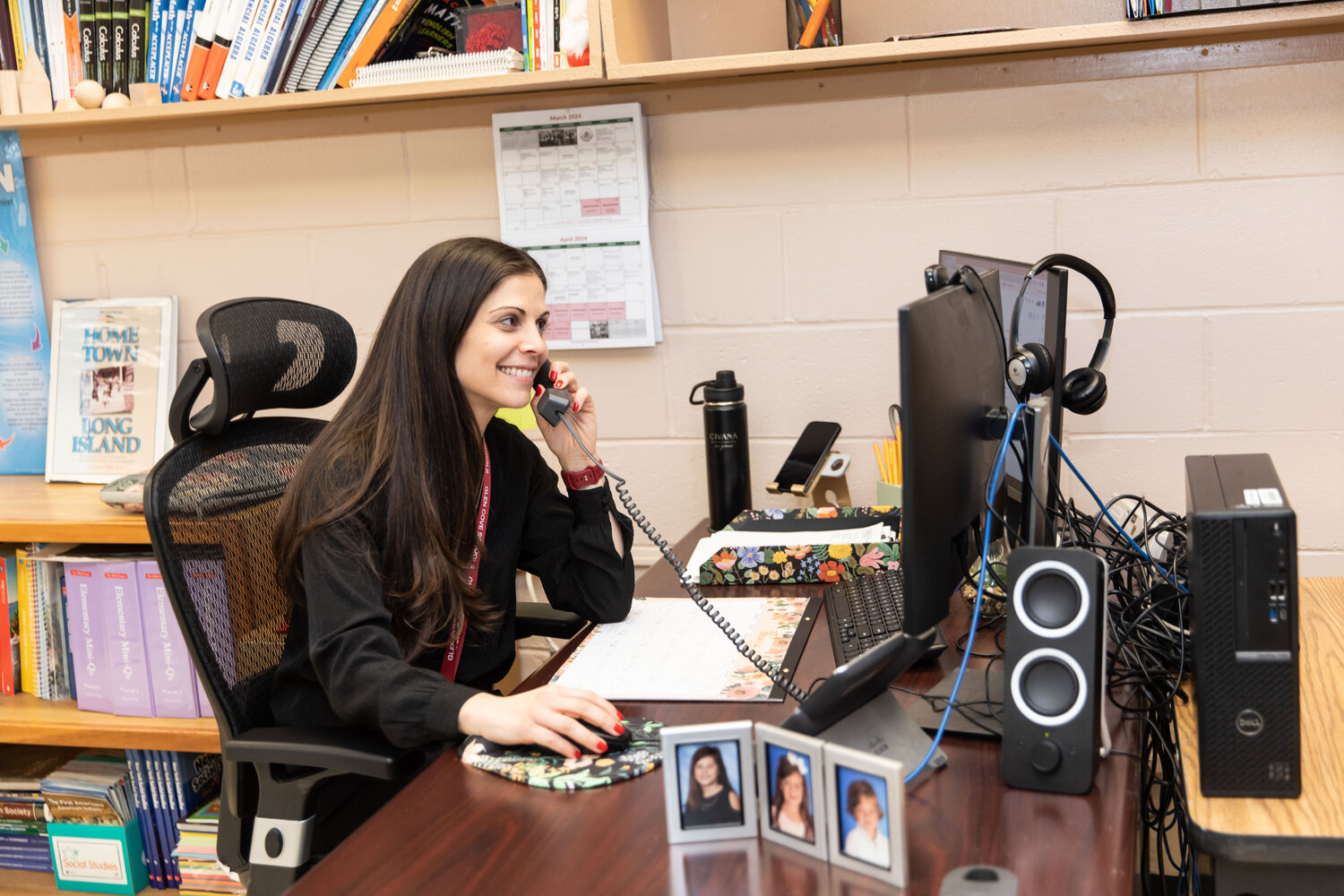Navigating the digital landscape in school
The Glen Cove City School District has a new district coordinator of instructional technology, Anna Policastro. Her path to education has been marked by a deep sense of purpose and a commitment to making a difference in the lives of children.
Policastro’s initial aspirations were in adolescent psychology, but it was within the walls of school buildings that she discovered her true calling. With a natural affinity for connecting with children and a desire to support them in their educational journey, Policastro knew that teaching was where she belonged.
The youngest of seven, Policastro’s journey into the world of childhood education began while caring for her younger nieces and nephews in their academic pursuits. Her teaching philosophy is deeply influenced by her family background, characterized by diverse strengths and challenges among her siblings.
“I have one brother that’s incredibly gifted with a very high IQ and he can do absolutely anything,” Policastro said. “And then I have another brother who has attention issues since he was young, and he’s always struggled with his schooling. Even throughout adulthood, completing his college degree was very difficult for him. I feel like I can see that sort of situation reflected in any classroom door you open; you don’t really know what kind of learner you have each year.”
She first enrolled at Sacred Heart University in Connecticut to study child psychology, but in her junior and senior years, discovered her calling was early childhood education, and opted for a chance to work with students across multiple elementary schools in Bridgeport.
“There were some students that were hearing impaired or emotionally disturbed things along those lines, I happen to connect with those kinds of students,” Policastro said. “I think that that’s where I really found my passion for teaching, being able to reach those students on a different level and support them in their education.”
Policastro enrolled at Mercy College which offered multiple teaching certifications. Upon completing her master’s degree in early childhood education, she earned three distinct certifications: birth to second grade, first to sixth grade, and special education.
During her initial post-graduation year, Policastro commenced her journey as a classroom assistant at an elementary school located on Manhattan’s Upper West Side. She was promoted as a full-time classroom teacher the following year.
Policastro bypassed the traditional student-teaching requirements in New York. Because of her internship certificate and commendations from Mercy College, Policastro seamlessly transitioned into a full-time teaching role while completing her master’s degree.
During her 12 years at the Saddle Rock School, in Great Neck, Policastro began her career as a fifth-grade classroom teacher, dedicating a decade to this role before transitioning to a technology staff developer and enrichment teacher. Her passion for innovation led her to actively participate in testing new technologies, aiming to enhance the learning experience for students.
Policastro’s involvement in the technology committee allowed her to advocate for innovative solutions, such as specialized desks for holding iPads, improving classroom dynamics and engagement by repositioning desks in a horseshoe formation for a Socratic-seminar learning environment.
As she expanded her role to include technology instruction and staff development, Policastro perspective shifted to a broader view of education, focusing on leveraging technology district-wide to make learning more accessible and engaging for students of all ages and abilities.
Just three weeks into her role as district coordinator of instructional technology, Policastro is still evaluating potential use of artificial intelligence programs like ChatGPT in the classroom. Some common misconceptions about using technology in education include the belief that all screen time is passive consumption, she said. However, children can also use technology creatively, such as through drawing or listening to audiobooks to make learning more fun.
“The digital landscape is constantly changing and evolving, and we’re not going to stop that,” Policastro said. “We’re at the beginning phases here of how to utilize such a strong tool like AI and seeing how we can help our students really thrive and becoming like a global citizen.”






